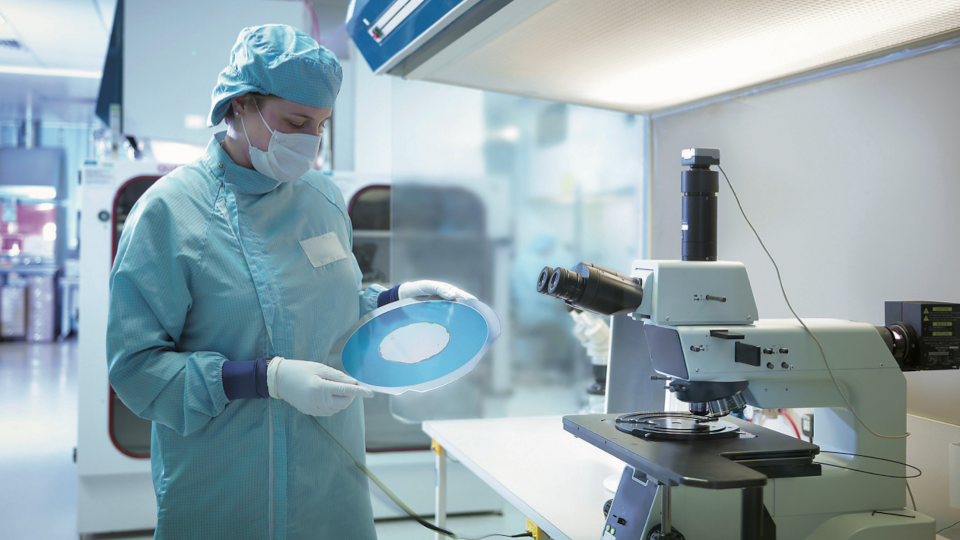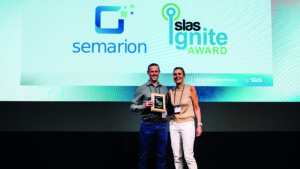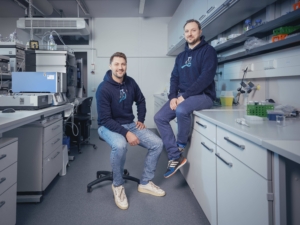
Austria as a Life Sciences Hotspot
Austria has gained an outstanding reputation as a research location in the field of life sciences both as a vibrant hub for science and as a cluster for research-oriented and manufacturing companies. The ABA links international companies with this ecosystem
The figures speak for themselves: Austria is home to almost 1,000 life sciences companies with a workforce of more than 60,000 employees, alongside 55 research institutions with close to 25,000 employees, and about 77,000 students focusing just on life sciences. It is no exaggeration to say that Austria a country with just nine million inhabitants has emerged as one of Europe’s most important research locations for pharmaceuticals and bio-technology. In 2020, the country’s pharmaceutical and biotech sector generated €25bn in revenue, showing 10% annual increases year after year.
Research and development are driven by 35 big pharma players and numerous innovative biotech firms. These include big names like Boehringer Ingelheim, Takeda and Novartis as well as many smaller, innovative companies, service providers, suppliers and sales organisations. The excellent infrastructure in Austria (including laboratory space), the large number of highly qualified employees and the availability of data and donors support the boom as a location for medical research.
Another yet even more important aspect is that foreign and national companies as well as research institutions highly value the unbureaucratic funding along with the intensive linkage between science and industrial research in the country.
As a life sciences hotspot, Austria has succeeded in creating a rather unique symbiosis fusing science, education, business relocation and cross-cutting business promotion. In terms of its R&D to GDP ratio, Austria is ranked third among all EU member states at 3.26%. The country improved to sixth place in the European Innovation Scorecard and thus leads the group of strong innovators within the EU. The good underlying conditions are attracting an increasing number of firms from multinationals to startups.
Research and practice Examples
- Vienna serves as the centre for cancer research of Boehringer Ingelheim. Boehringer Ingelheim already put a production plant for active pharmaceutical ingredients into operation and will open a new cancer research building in 2024.
- The Swiss company Novartis located its largest single facility for research, development and production in Tyrol. The site has made a name for itself in the media because it is home to Europe’s only complete production chain for oral antibiotics.
- The Mainz-based company BioNTech SE, which gained global fame during the coronavirus crisis, acquired PhagoMed, the Viennese developer of precision antibiotics, thus expanding its portfolio of promising anti-infectives.
- 4,500 employees in Vienna, Linz and Orth an der Donau conduct research on gene therapies, recombinant proteins, plasma-based therapies and innovation technology for the Japanese company Takeda, a global biopharmaceutical player. Furthermore, Takeda also operates twelve plasma centres in Austria and produces gene therapy products, biologics and other medical products.
- The MedTech startup Sarcura founded in 2019 focuses on developing personalised cell therapies on a large industrial scale. At the end of last year, it succeeded in raising a further €7m from existing and new investors.
- Myllia Biotechnology in Vienna makes use of the CROP-Seq workflow (CRISPR droplet sequencing) deve-loped by Myllias co-founder Christoph Bock to map the impact of thousands of genetic perturbations on the glo-bal transcriptome at single-cell resolution. This approach is widely used in identifying novel drug targets, elucida-ting unknown mechanisms of actions of drugs and understanding genetic variants associated with risks of disease.
Research connects!
Besides political and financial incentives, the interface linking science on the level of institutes to highly innovative companies is perhaps the most important argument of all in favour of Austria as a research location. Vienna and Innsbruck are home to the biggest clusters. Half of all biopharmaceutical firms operate in the capital city. The Eric Kandel Institute – Center for Precision Medicine is being set up at the Medical University of Vienna in close proximity to Vienna General Hospital, home to the world’s largest university clinics. Vienna with its Co-Location Center Austria as a startup incubator for life sciences companies is also one of the hubs in the European Institute for Innovation & Technology Health.
Other science locations also stand for strong life sciences expertise in addition to Vienna. For example, the Medical University of Graz is known as a headquarter for blood banks. Graz is home to one of the biggest clinical biobanks anywhere and the EU headquarters of BBMRI-ERIC, the European research infrastructure for biobanking. The Medical University of Linz is positioned as an interface for science, software and health offering a good home for eHealth startups and the Medical University of Innsbruck as a research centre for oncology, neurosciences and genetics.
14% uncapped research premium
Health and pharmaceutical research including technological research is one of the major issues in this century. Continents and nations are engaged in a fierce competition for the best ideas, minds and business models.
In this regard, Austria has deve-loped a particularly attractive funding policy compared to many other nations, directly paying an uncapped research premium of 14% of R&D expenditures to researching companies. This not only applies to in-house research but also contract research, staff costs and much more. In this way about €1bn in funding has been paid out in recent years.
An immigration allowance further enhances Austria’s attractiveness for companies and research facilities from abroad. This foreign researchers’ 30% tax deduction limited to five years applies to all income from scientific work. The Austrian Science Fund (FWF) supports basic research, the Austrian Research Promotion Agency (FFG) offers target funding packages to researching companies for the entire development cycle and clinical studies, and as the government’s promotional bank, Austria Wirtschaftsservice GmbH (aws) provides grants and loans.
Contact us:
Austrian Business Agency (ABA),
Birgit Reiter-Braunwieser
Telephone: +43 1 588580
E-Mail: b.reiter-braunwieser@aba.gv.at
https://investinaustria.at/
ABA moves mountains for R&D companies
Anyone thinking about setting up a life sciences company or research location in Austria is in the right place with ABA. Austria’s national business location consultancy Austrian Business Agency informs and advises interested parties free of charge but also does much more. It provides comprehensive support to companies in the initial phase and offers subsequent business development assistance. ABA’s services include market and industry research, site search (also for laboratory space), networking with research institutes, information on establishing and expanding companies and consulting on potential funding, tax aspects and financing options. Finally, ABA also helps in searching for qualified skilled workers. ABA’s overall package enormously facilitates the decision in favour of a business location in Austria.


 SLAS - Alexandra Csuport Photography
SLAS - Alexandra Csuport Photography Phabioc GmbH
Phabioc GmbH